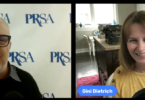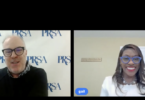Editor’s note: This is the 10th in a series of 12 guest posts from industry executives predicting key trends that will impact the public relations industry in 2012. Hosted under the hashtag #PRin2012, the series began Dec. 19, 2011, with a compilation post previewing all 12 predictions.
Audience fragmentation and downsizing have taken their toll on the traditional news media. One trend filling the gap is “Brand Journalism.” It refers to the practice of an organization employing its own “reporters” to cover its events/announcements and then publish reports using the conventions of news.
Layoffs and rapid turnover mean many PR pros are finding it difficult to establish solid relationships or earn the attention their promotional efforts may deserve. Enter Brand Journalism.
The advantage of Brand Journalism grows with the ubiquity of the Web:
- Google owns 65 percent of the search market share, according to ComScore, and it has added press releases from wire services to its Google News aggregator (though consumers do have the option to filter them out, along with blogs).
- Coincidentally, 65 percent of adults use social networking sites (up from 61 percent in 2010), according to research from the Pew Internet & American Life Project. Services like Twitter are attracting more news consumers every day with the speed they can deliver current events (far faster than traditional news outlets).
A company could potentially have more visibility producing its own content as opposed to relying on the news media to carry its message (provided it’s indexed properly).
Brand Journalism is fraught with ethical perils, however. Both Chevron and British Petroleum (BP) drew fire for their own Brand Journalism by employing it during crises and giving themselves undeservedly-positive treatment.
Ironically, one of the best visible models for Brand Journalism is “Howard 100 News” — the entity created by Howard Stern for his programming on Sirius/XM satellite radio. The team is stocked with investigative news veterans who have free reign to cover the good and the bad (often to Stern’s chagrin), which gives them credibility with their audience (word to the wise).
Derek DeVries (@Derek DeVries) is a social media-obsessed PR pro, professor and communications technology manager at Grand Rapids Community College.







Hello All:
My name is Howard Rauch and I currently chair the American Society of Business Publication Editors Ethics Committee. I agree with the author’s “Brand Journalism Brings New Ethical Perils” headline. However, he may have understated the range of possible formats available to companies desiring to engage in “content marketing,” as the trend has become widely known. The range of approaches can include e-newsletters, e-books, white papers and multi-page supplements once widely known as advertorials.
Brand journalism’s alleged emphasis is to deliver high-value, instructive information to a desired audience, in the process omitting hype usually associated with dedicated sales pitches. Ethically speaking, my committee’s concern is how journalists hired to create content marketing messages will function in an environment where the employer is not a publisher.
On the other hand, content marketing’s rising popularity does seem to bring with it opportunities for capable editors, either via involvement in developing projects through their B2B publisher/employer . . . or perhaps through a PR firm intent on nabbing a bigger share of this business.
Howard – Thanks for reading! Indeed this looked at only a limited range of the wide variety of opportunities organizations have available to them through Content Marketing. I’m very interested in the possibilities that exist for Brand Journalism to perhaps not begin with an audience, but through the power of search, to find their audience through the serendipity that algorithms and social sharing can create.
With the continued fragmentation and decimation of the media, it is very clear to me that brands have little choice but to expand their communications efforts directly to their customers through a variety of “tell the truth well” social mediums that will quickly call out the “fear of spin” whenever they see it. This is already happening on a dramatic scale as PR pros take the reigns as Community Mangers directly engaging with customers on an ongoing basis.
These PR professionals have the industry knowledge on par with many specialty analysts who help customers understand the benefits of specific products and services. I see the emergence of “PR Journalists” as just another example of the capabilities of PR professionals. It is in the best interests of the company and its customers to makeup for the slack coverage as traditional journalism continues its decline and looks to cover stories only for increased eyeballs.
As a follow-up to this post, I’ve got a write-up of an interview I did with Jon Leiberman of Howard 100 News on my blog:
Profile in Brand Journalism: Jon Leiberman of Howard 100 News
http://devriesblog.com/2012/02/01/profile-in-brand-journalism-jon-leiberman-of-howard-100-news/